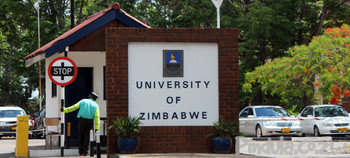The South Sudan Ministry of Higher Education has made payments of up to USD 400,000 to the Zimbabwean government as part of school fees arrears for over 100 South Sudanese students who studied there.
Various public universities in Zimbabwe where the students have finished their studies and graduated have been withholding their certificates until the arrears are cleared by the South Sudan government.
According to the higher education ministry delegation to Zimbabwe, the two countries after thorough negotiations agreed on a payment plan to clear off about USD 1.6 million in arrears.
Kezekia Deng Woul, the Director-General for Administration and Finance in the ministry said that of the arrears, they were only able to pay USD 400,000.
“We managed to reach an agreement that is a payment plan. The amount that is required from us is USD 1.6 million. They had said it was USD 1.8 but we sat down and calculated it down to USD 1.6 million," he stated.
Deng added that according to the payment plan, South Sudan will pay Zimbabwe the remaining balance of USD 1.2 million until 2023.
The official in the ministry further said they collected 105 certificates and those students still pursuing their studies to continue without any interference.
Abraham Atem Atem Kur, a beneficiary of the Zimbabwean scholarship expressed his joy after learning that he would receive his certificate. "I am so excited about getting my certificate today, I don’t hesitate to tell myself that I can make it anywhere in South Sudan and around the world because I have my certificate with me, I feel so positive,” Atem said.
Meanwhile, Zimbabwean student representative Makur Maker advised the ministry to first study scholarship opportunities before sending students abroad saying such issues could affect student's performance.
“If any country wants to take our students outside, that scholarship has to be studied very well. Questions on who will be responsible for the students, what will be the costs for the scholarship, and who will be responsible if the student gets sick and even when they lack food, all those things have to be studied before they go abroad,” Maker cautioned.




